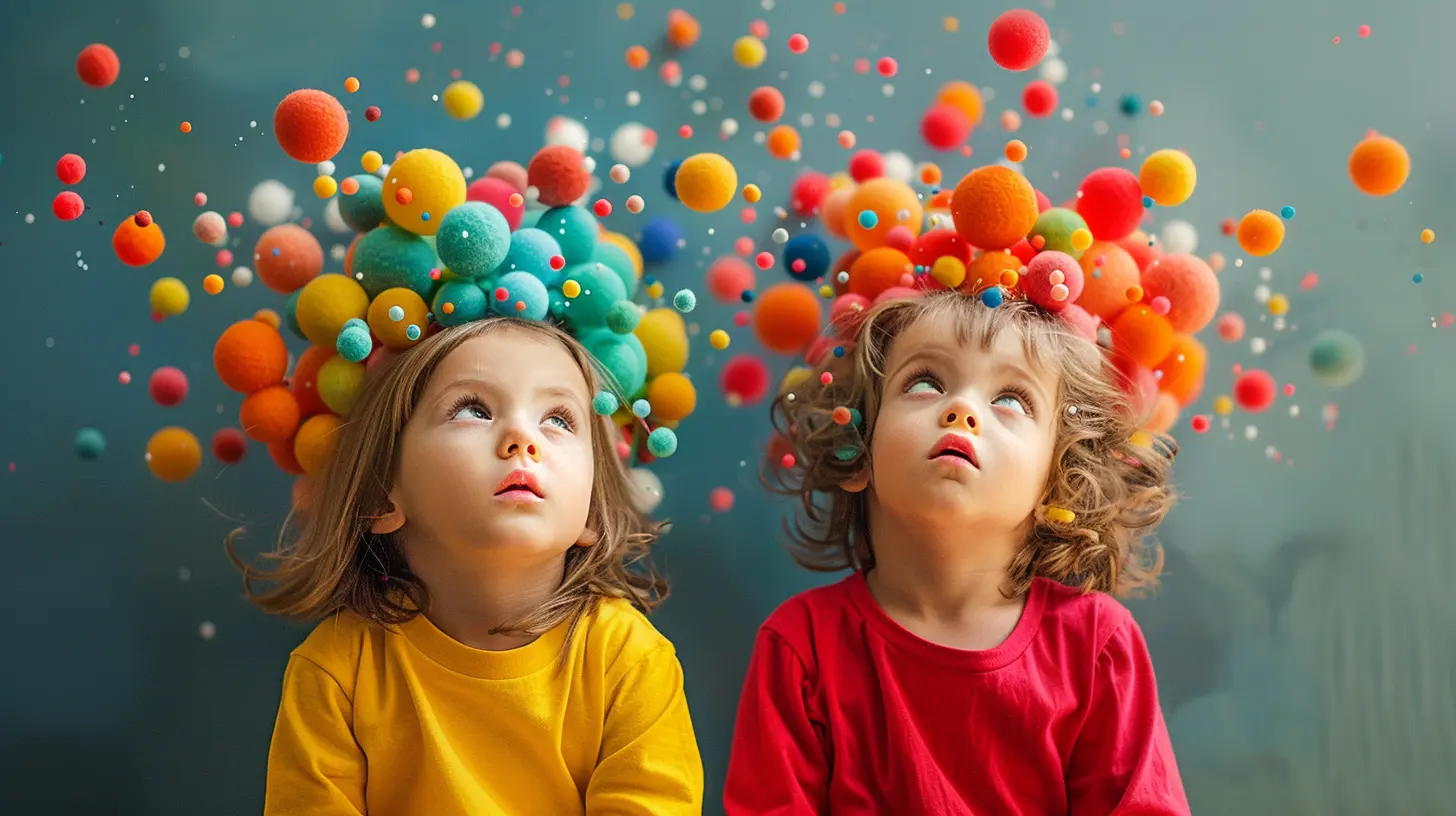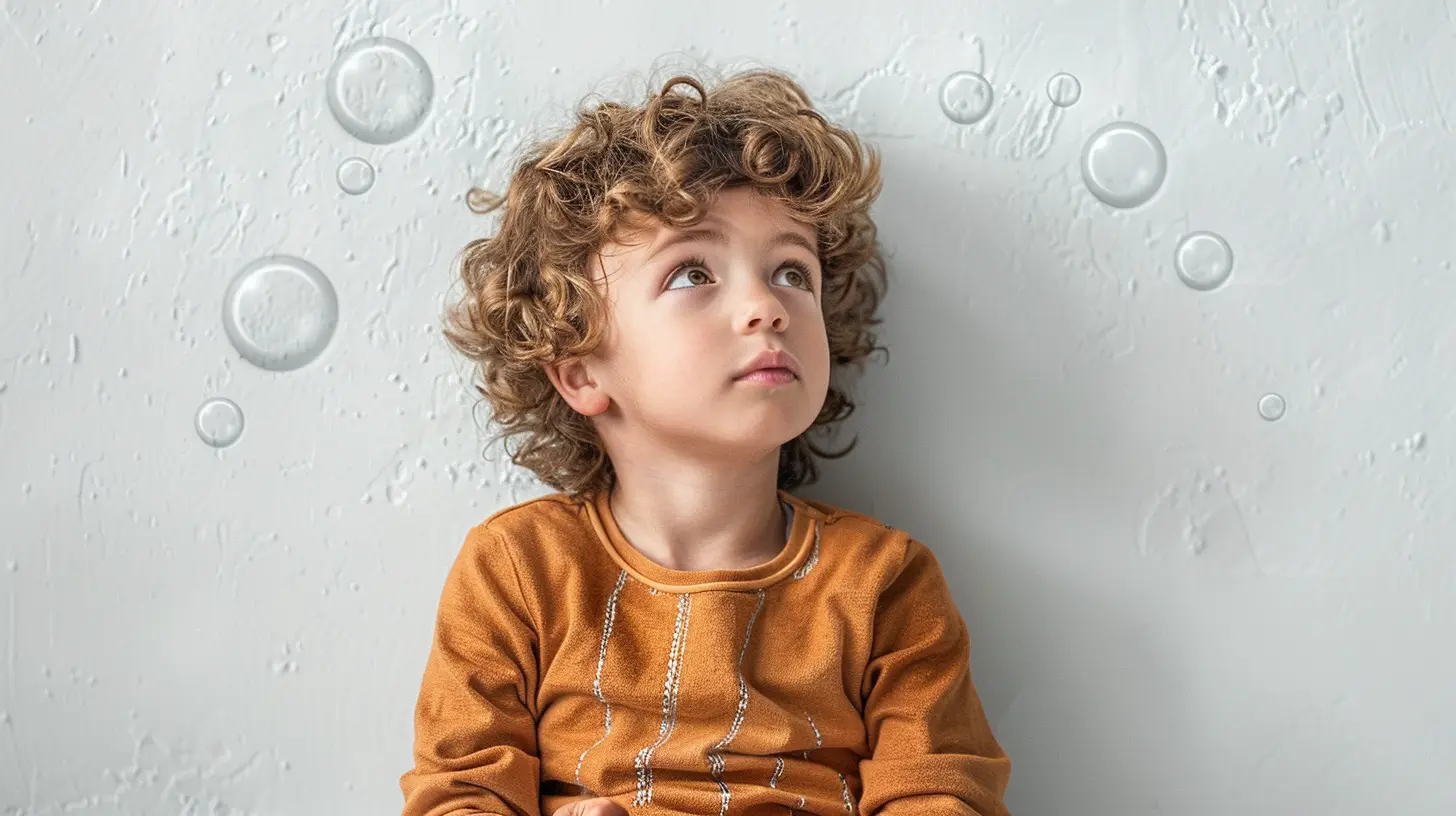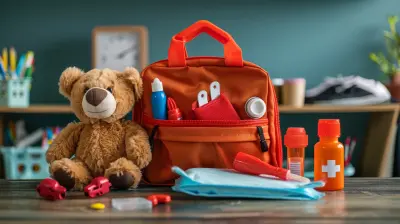The Role of Bilingualism in Cognitive Development
23 June 2025
Let’s be real: raising kids today feels like managing a tiny startup. You’re juggling schedules, snacks, screen time — and somewhere in the mix, you might be wondering if teaching your child a second language is worth it. Sure, it sounds impressive, but will it actually help them? Spoiler alert: yes, big time.
Bilingualism isn't just about speaking two languages. It's like giving your child a cognitive gym membership — exercising their brain in ways that can boost problem-solving, focus, memory, and even creativity. And the earlier they start, the better. But don’t worry if you’re coming in a little late — the brain is surprisingly flexible.
Let’s dive into the juicy details of how bilingualism plays a big role in sharpening those little minds.
What Is Bilingualism, Anyway?
Before we get too deep, let’s clarify what bilingualism means. Simply put, it’s the ability to speak and understand two languages fluently. This can be balanced (equal fluency in both languages) or dominant (stronger in one language than the other). Kids can become bilingual in different ways — either by growing up in a household where more than one language is spoken, or by learning a second language at school or from caregivers.It’s not just about being able to order pizza in Italian while on vacation (though that’s a plus). It’s about building a brain that thrives on flexibility, awareness, and adaptability.
How the Bilingual Brain Works Differently
Imagine your brain is a computer. A bilingual brain has dual operating systems running side-by-side — and it knows exactly when to switch. That constant toggling between languages gives the brain a serious workout. Scientists call this “code-switching,” and it’s more impressive than it sounds.When a bilingual person speaks one language, the other is still active in the background. So their brain is constantly filtering, choosing, and focusing — skills that transfer over to other areas of life.
Executive Functioning Gets a Boost
Executive functioning is like the CEO of the brain — it manages tasks like attention, planning, and problem-solving. Bilingual kids are often better at:- Ignoring distractions (hello, classroom chaos)
- Switching between tasks with ease
- Remembering instructions and details
This is because they’ve been mentally toggling between languages since toddlerhood.
Better Cognitive Flexibility
Ever met a kid who can adapt to changes without losing their cool? That’s cognitive flexibility — the ability to think about things in different ways. Bilingual kids are champs at this because different languages often come with different perspectives and cultural frameworks.They’re more open to new ideas, quicker to find solutions, and are often better at thinking outside the box.
Memory and Focus — The Hidden Superpowers
Here’s something interesting — when kids grow up bilingual, they develop sharper working memory. That means they’re better at holding on to bits of information (like remembering multiple-step instructions) while using it to do something else. It’s like mental multitasking — and they’re good at it.Also, bilingual children often show higher levels of sustained attention. Since their brains are constantly choosing which language to use, they’re naturally better at tuning out unneeded info and focusing on what matters.
Language and Literacy Advantages
You might assume that juggling two languages delays language development. That’s a myth. In fact, bilingual kids might start speaking a bit later, but they catch up fast — and often overtake their monolingual peers.Here’s how bilingualism helps language skills:
- Strong Vocabulary Skills: They know more words overall, just spread across two languages.
- Better Understanding of Grammar and Syntax: It’s like comparing two rulesets — they learn how language works on a deeper level.
- Improved Reading Skills: Bilingual children often develop stronger phonological awareness — the ability to hear and manipulate the sounds in words — which supports reading.
Basically, being bilingual builds a deeper understanding of language as a system, which makes learning to read and write a smoother ride.
Cultural Awareness and Social Benefits
Beyond the brainy perks, bilingual kids often come with a cultural superpower — empathy. When they learn another language, they’re also learning another way of thinking, another way of seeing the world. It’s like giving them access to a second pair of glasses — and the world looks more colorful through them.They’re more likely to:
- Appreciate different cultures and traditions
- Be open-minded and inclusive
- Communicate more easily with diverse groups of people
In today’s global world, that’s not just nice — it’s a serious advantage.
Does Age Matter When Learning a Second Language?
Yes and no. Young kids have the advantage in pronunciation and natural fluency — their brains are wired for language learning. That’s why the earlier you can start, the better. Think preschool age or even earlier.But don’t worry if your child is a bit older — or even a teenager. All is not lost! While the accent might be harder to master, the cognitive benefits of bilingualism can still develop at any age. Plus, older kids can often pick up vocabulary and grammar faster because their brains are more developed.
So, if you’re late to the bilingual party: don’t skip it — just jump in where you are.
Common Myths About Raising Bilingual Kids
Let’s burst some bubbles, shall we? There are a few myths that refuse to die:1. “They’ll get confused.”
Nope. Bilingual kids might mix languages at first (called code-mixing), but that’s normal and temporary. Their brains can handle it — probably better than ours can.2. “It’ll cause speech delays.”
Research shows no connection between bilingualism and speech delays. If there are delays, they’re likely unrelated to language exposure.3. “They need to be equally fluent in both languages.”
Not true. It’s normal for kids to be stronger in one language, especially if one is used more than the other.So don’t stress if your child speaks a mix of languages, or prefers one over the other at times. Their brain is still getting all the goodies.
Tips for Supporting Bilingual Development at Home
So how can you help your child become bilingual — especially if you're not fluent yourself? Good news: you don’t need to be a linguist. Here are some practical tips:1. One Parent, One Language (OPOL)
If each parent speaks a different language, stick to your own language consistently. It helps create clear associations and avoids confusion.2. Make It Fun
Songs, cartoons, books, apps, and games in the second language go a long way. Kids absorb language best when it’s linked to fun.3. Daily Exposure
Regular use is key. If possible, dedicate certain times of day (bedtime stories, mealtimes) to using the second language.4. Find Language Buddies
Playdates or video calls with relatives who speak the second language help reinforce real-life use.5. Stay Patient
Language growth isn’t linear. Don’t panic if your child seems to backslide or mix languages — it's all part of the process.Bilingualism and Long-Term Brain Health
Here’s a bonus: studies show that bilingualism can actually help delay the onset of dementia and Alzheimer’s later in life. It’s like giving your brain a buffer against aging. Lifetime bilinguals often show stronger cognitive reserves — meaning their brains can keep working well even if physical changes have started to occur.That’s a pretty compelling reason to give your child — or yourself — a second language.
Final Thoughts: It’s More Than Words
The role of bilingualism in cognitive development is deep and wide. It’s not just about speaking two languages — it’s about building a brain that’s adaptable, resilient, and highly skilled at navigating complexity.From better problem-solving to richer cultural understanding, bilingualism sets kids up not just for school, but for life.
So if you’ve been sitting on the fence about raising bilingual kids — or worried that it might be too late — take this as your green light. Whether it’s Spanish, Mandarin, French, or sign language, every bit of exposure gives your child a mental edge.
And hey, worst-case scenario? They’ll be better at ordering tacos on vacation. Not bad, right?
all images in this post were generated using AI tools
Category:
Child DevelopmentAuthor:

Kelly Snow
Discussion
rate this article
2 comments
Carter McVicker
Bilingualism isn’t just a cute party trick—it's like giving your kid's brain a double shot of espresso! Who wouldn’t want sharp thinking and endless opportunities? Let them thrive in both worlds!
November 5, 2025 at 3:41 PM

Kelly Snow
Absolutely! Bilingualism enhances cognitive skills and opens doors to numerous opportunities, fostering a rich environment for growth and learning.
Jamie McNeely
Bilingualism enriches children's cognitive abilities and fosters creativity—embrace the journey of raising a multilingual child for a brighter future!
June 24, 2025 at 4:39 PM

Kelly Snow
Thank you for your insightful comment! Bilingualism indeed plays a crucial role in enhancing cognitive skills and creativity in children, paving the way for a brighter future. Embracing multilingualism is a rewarding journey!


